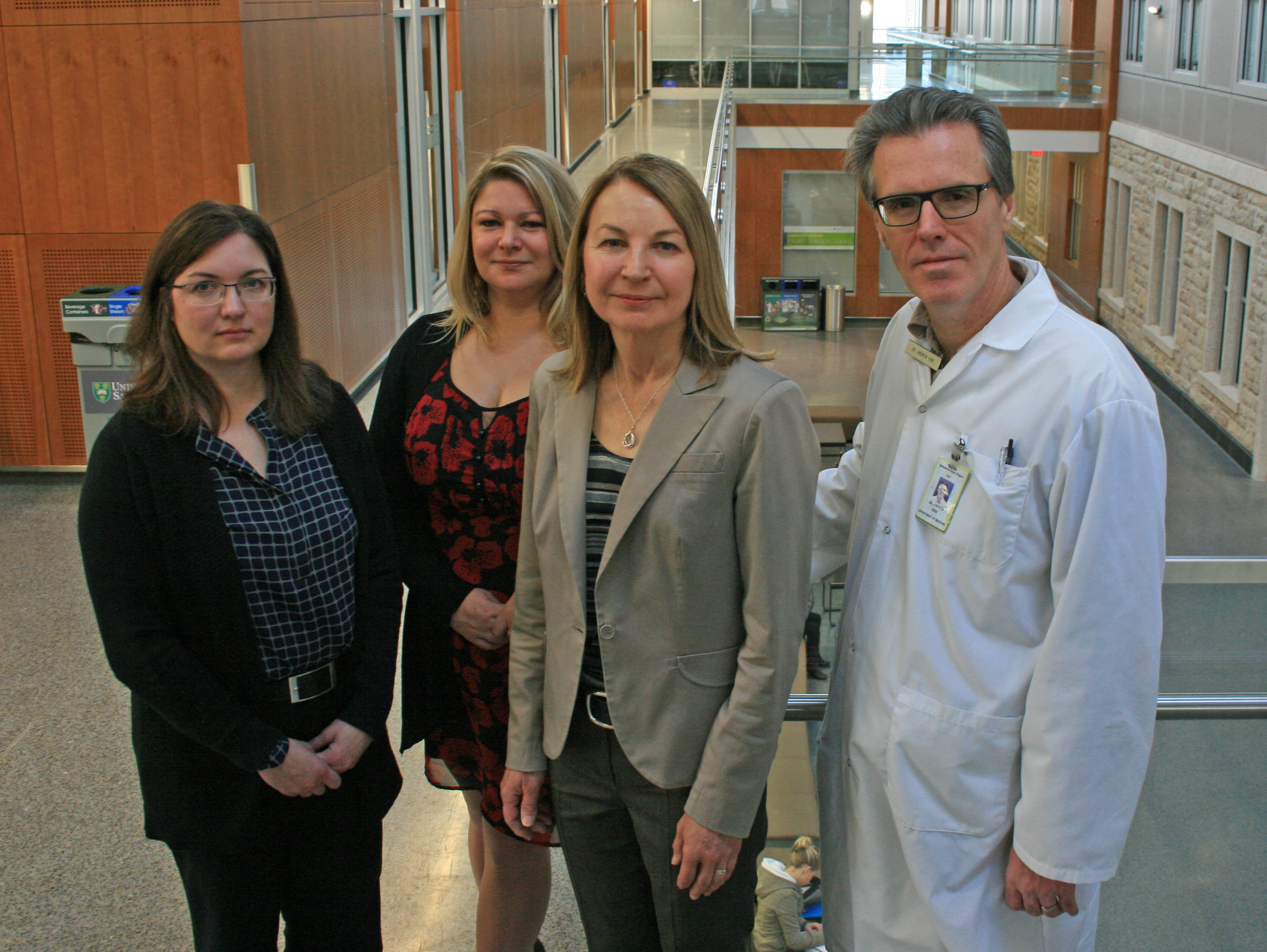
Building Capacity for Rural and Remote Dementia Care
Maybe she’s been having trouble finding the right words or managing bills; or her normally cheerful disposition has been replaced by someone who is often confused and easily upset. These early signs that something may be wrong trigger a trip to your local family doctor or nurse practitioner.
By Nikki Desjardins for SHRFThis is a scene some aging rural and remote residents and their families are facing in Saskatchewan and a health challenge that researchers with the Rural Dementia Action Research (RaDAR) team have been working over the years to address.
Since 2003, SHRF has been a steadfast supporter of the work Dr. Debra Morgan and her team have been doing to improve the care of those with dementia in rural and remote areas of our province. In 2014, RaDAR joined the Canadian Consortium on Neurodegeneration in Aging (CCNA), an initiative that fosters research collaborations across Canada as part of a national dementia strategy. The CCNA’s mission is to accelerate and synergize research nationwide in dementia prevention, treatment and quality of life.
“With SHRF’s support, we were able to be involved in the CCNA and, in Phase I, we have established a lot of partnerships and also put rural dementia care on the map,” says Dr. Morgan.
Based on the Rural and Remote Memory Clinic (RRMC) that the RaDAR team developed at the University of Saskatchewan, Phase I work included the development of a team-based approach to dementia assessment and management in rural primary health care (PHC) clinics. Much like the specialist memory clinic in Saskatoon, which is now sustained as a provincial government-funded clinical resource in the province, these rural memory clinics are a one-stop shop to see a team of health care professionals that may include a physician, nurse practitioner, home care nurse, occupational therapist, physical therapist, social worker and an Alzheimer Society First Link Coordinator.
In developing these rural memory clinics, RaDAR worked first with the Kipling PHC team to operationalize best practices in PHC for dementia in ways that were feasible and sustainable for rural settings. It was about support for caregivers, education for families, support for health care providers and providing coordinated care. The memory clinic model was then spread to PHC teams in Weyburn, Bengough, and Radville.
The benefits of these clinics are exponential and include more than just reducing the travel burden for patients and families to access specialized care. Primary health care providers have access to decision support tools, including standard guidelines and other resources. Specialist-to-provider support and education sessions mean the PHC teams are developing further skills and are better equipped to assess and manage dementia and recognize cases for referral. The team-based approach means patients and families receive care closer to home and the clinics are able to provide local services and community support throughout the dementia journey.
In June 2019, Phase II of the CCNA was announced. This further investment from the Government of Canada through the Canadian Institutes of Health Research (CIHR) and other partner organizations, including SHRF, means the work will continue to provide better care for those with dementia.
Drs. Morgan and Julie Kosteniuk will lead the continued work to support the four rural memory clinics that have been established in southern Saskatchewan communities. With Dr. Megan O’Connell, co-lead of the ‘Issues in Dementia Care for Rural Populations’ team in Phase II, they will also work with other CCNA team members to expand upon the Phase I work.
Where Phase I focused on building capacity for dementia care in rural PHC settings, Phase II will focus on ensuring that caregivers receive the information, community services, and support they require through the memory clinics.
“We know that caregivers are affected a lot when there is a dementia diagnosis,” says Morgan. “We want to make sure that the caregivers’ needs are also being assessed and recognized and that they are being supported.”
Electronic medical records (EMR) are a key tool in the teams’ ability to carry out and coordinate the interdisciplinary work they do. In Phase II, these de-identified records will provide insight into the clinical characteristics of memory clinic patients and the team-based care they receive. Using this data and linking it to administrative health data in the province, RaDAR will be able to look at health service use patterns. This will provide further evidence for the rural memory clinics and hopefully lead to a sustainable model that can be implemented in other rural and remote areas of the province.
SHRF is proud to have been an early and continued supporter of this important work that is bringing hope and better care to our aging rural and remote population.
Learn more about the RaDAR team on SHRF's website.
